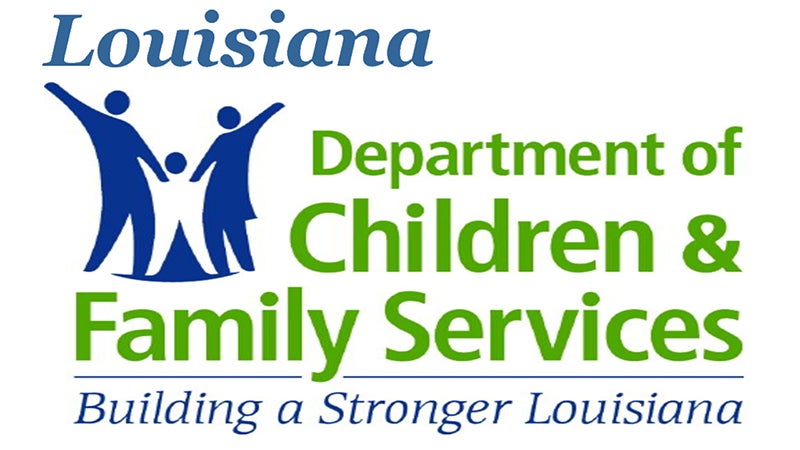|
BATON ROUGE, LA -The United States Department of Agriculture Food and Nutrition Service (USDA FNS) has announced February 2023 is the final month of the temporary extra Supplemental Nutrition Assistance Program (SNAP) benefits, known as emergency allotments, put in place at the start of the COVID-19 pandemic. The recent passage of the Consolidated Appropriations Act, 2023, ends these benefits. SNAP emergency allotments have allowed households to receive the maximum SNAP benefit amount for their household size, with a minimum supplemental allotment amount of $95. Beginning in March 2023, all SNAP households nationally, including those in Louisiana, will return to their regular benefit amount.
Since March 2020, the Families First Coronavirus Response Act has authorized states to issue Emergency Allotments to SNAP households to help address temporary food needs and ease economic stress during the pandemic. States were authorized to issue these extra benefits alongside the regular SNAP benefits households receive each month, as long as a state’s emergency or disaster declaration and the federal Public Health Emergency remained active. Although Louisiana’s Public Health Emergency Order ended in March 2022, Governor John Bel Edwards signed Executive Order JBE 2022-10, which allowed the Louisiana Department of Children and Family Services (DCFS) to continue issuing Emergency Allotments through February 2023, making it one of just 28 states to do so.
From March 2020 to December 2022, DCFS issued over $2 billion in Emergency Allotments, or $59.5 million each month to 418,084 households per month on average.
“Emergency allotments were always going to be temporary. We requested approval to issue the supplements each month and messaged our SNAP households when the USDA approved them. Still, we know this news will be unsettling to recipients who have counted on the additional food assistance for the past three years, especially as they struggled with the health and economic crisis brought on by the pandemic,” said Assistant Secretary of Family Support Shavana Howard. “We encourage the public to support food banks, non-profits such as the United Way, faith-based partners and others who will no doubt be stepping up to fill the gap created by the loss of the additional assistance. We will be working with these partners over the next several weeks to support them in this effort.”
As Emergency Allotments end in February 2023, each SNAP household will receive benefits based on the standard SNAP eligibility criteria, such as household size, income, and shelter expenses. As a reminder, the SNAP cost of living adjustment (COLA), which took effect on October 1, 2022, increased maximum benefit amounts, income limits, and deductions for SNAP households.The Social Security COLA increase, which took effect January 1, 2023, increased Monthly Social Security Retirement, Survivors and Disability Insurance (RSDI), Supplemental Security Income (SSI), and some Veterans Administration (VA) payments by 8.7%. This increase in income could lead to a reduction or loss of some of these recipients’ SNAP benefits. A notice was sent to all households who were negatively impacted by the Social Security COLA.
Explaining the impact on individual households is challenging because every household is different. The amount of benefits is calculated based on individual income and expenses. For instance, a single-person household with no income may have received the maximum monthly SNAP benefit (for a household of one) of $281. Because the household was already receiving the maximum benefit for its size, it would have received an additional supplementary allotment of $95, increasing the household’s benefit to $376. With emergency allotments ending in February, the household will now receive only $281 in monthly benefits.
In comparison, a household of three with income might have been eligible for $335 per month in regular SNAP benefits. With the additional emergency allotments, that same household would have received a total of up to $740 per month, the maximum benefit for a family of three. In March, with the end of emergency allotments, that family will go back to receiving only the $335 per month regular benefit.
A household’s normal benefit amount can be located under Case Details in the LA CAFE portal or within the household’s most recent Notice of Decision. SNAP benefit amounts will vary from household to household based on their circumstances and household size. Additionally, DCFS will also mail letters to each household providing the amount of their regular monthly allotment.
While Emergency Allotments are ending, households may be eligible for additional benefits if they have experienced an increase in size, a decrease in income, or an increase in costs associated with shelter, child care, or court-ordered child support. Reporting these changes may result in an increase to a household’s regular monthly benefit amount.
Furthermore, households in need of additional resources may apply for WIC, visit food banks, or contact 211 to find information about food assistance and other resources that may be available to them.
Additional information relating to the ending of Emergency Allotments can be found on the DCFS Emergency Allotment FAQs webpage or on the Food and Nutrition Services Changes to SNAP Benefit Amounts – 2023 webpage.
###
|
